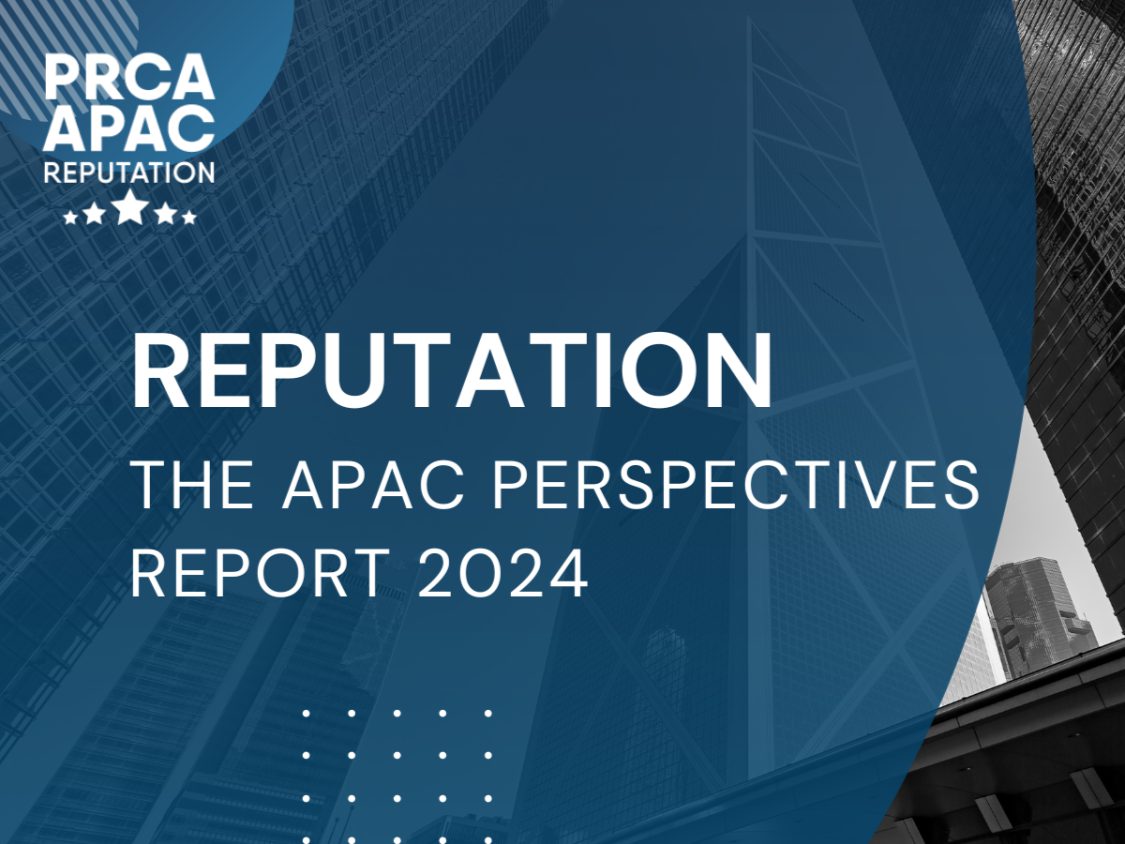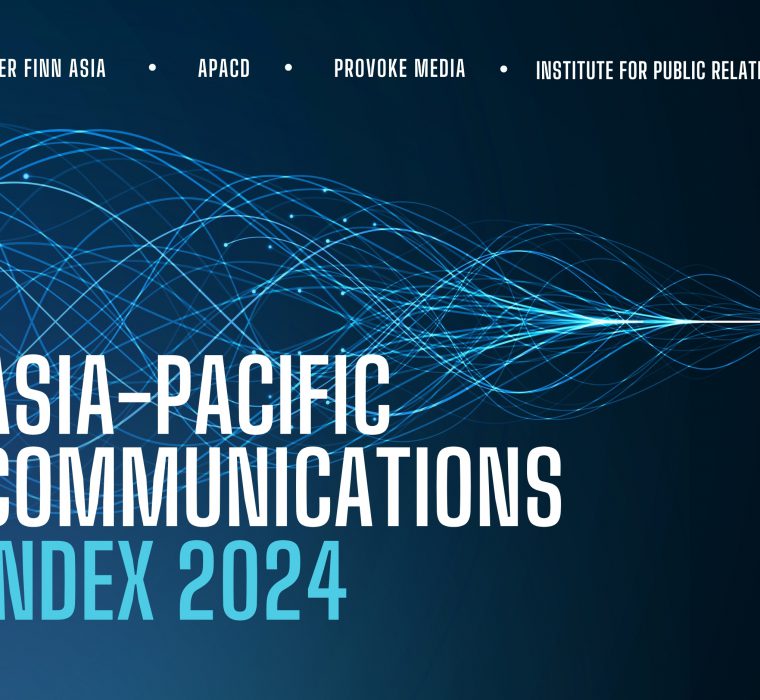Study: Five Issues That Are Setting The Reputation Agenda In Asia-Pacific
15th July 2024
A new report delivers insights from 30 communications and PR leaders across Asia-Pacific, providing a compelling picture of the issues defining reputation management in the region.

HONG KONG — A new report delivers insights from 30 communications and PR leaders across Asia-Pacific, providing a compelling picture of the issues defining reputation management in the region.
Produced by PRCA APAC, ‘Reputation: The APAC Perspectives Report 2024’ features viewpoints from in-house communications and PR agency leaders based in 14 Asia-Pacific cities, ensuring a welcome breadth of geographic diversity. Contributors include senior figures at such organizations as ABB,Amgen, Archetype, Avian WE, Golin, Maverick, MSL, PRecious, Randstad, Siemens, SenateSHJ, Sinclair and Weber Shandwick.
In addition to defining the concept of reputation in Asia-Pacific, the study also highlights programmes and initiatives that communicators are prioritising in 2024 and suggests significant trends that corporate reputation practitioners should be aware of.
Much of the report, understandably, reiterates many of the focus areas that are front and center for communications professionals in Asia-Pacific today. In the process, however, it delivers a compelling snapshot of the issues that are setting the reputation agenda in this region.
Accordingly, in no particular order, here are five takeaways from the research:
1. Media fragmentation and trust issues are accelerating
The ongoing fragmentation of the media landscape and the erosion of trust in mainstream media and institutions are flagged by a number of the study’s authors. The situation is worsened by social media algorithms that create echo chambers, spreading misinformation and intensifying societal polarisation. The advent of generative AI and deepfake content further complicates the scenario, calling for authentic and precise communication from practitioners.
2. Internal stakeholders are crucial for navigating the VUCA era
The ‘electrification’ of employee engagement has become a crucial trend for corporate communicators in recent years. Several of the the report’s contributors highlight how effective crisis and issues management starts by prioritising internal stakeholders. Employee engagement, accordingly, emerges as a critical means of navigating the VUCA era. Informed and motivated employees are seen as an organization’s most valuable asset.
3. The importance of integrating AI and DEI
The rapid evolution of technology, particularly AI, alongside the intentional implementation of DEI practices, are identified as significant opportunities in terms of reputation management. While AI is seen as being to able to enhance productivity and creativity, DEI initiatives can drive positive societal change in Asia-Pacific. Many contributors emphasise that a data-driven approach is particularly important to measure and demonstrate the value of these initiatives.
4. Transparency and authenticity impact the bottomline
All of the issues above also require a level of transparency and authenticity that has not always been prioritised in Asia-Pacific markets. Several of the report’s authors, for example, advocate for proactive crisis communication planning and a much more stakeholder-centric approach towards building credibility and trust. These particular findings may sound obvious, but our own Crisis Review regularly reveals how authentic communication is too often overlooked, leading to ineffective reputation management and significant financial losses.
5. ESG and ethical practices must rise above the superficial
While the scale of the ‘ESG backlash’ is not quite as significant as in Western markets, the report nevertheless advises a measure of caution amid the twin trends of greenwashing and green-hushing. Specifically, that means rising above superficial ESG efforts and genuinely committing to ethical behaviour. Organizations must align their actions with their stated values to build and maintain stakeholder trus — that this point is so clearly advocated suggests that it remains a challenge for many in the Asia-Pacific region.




